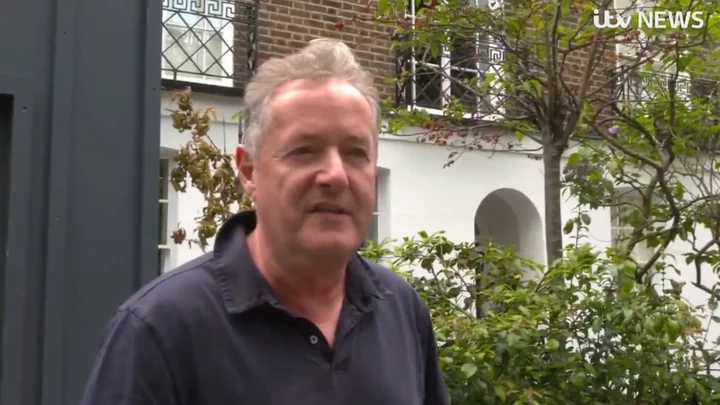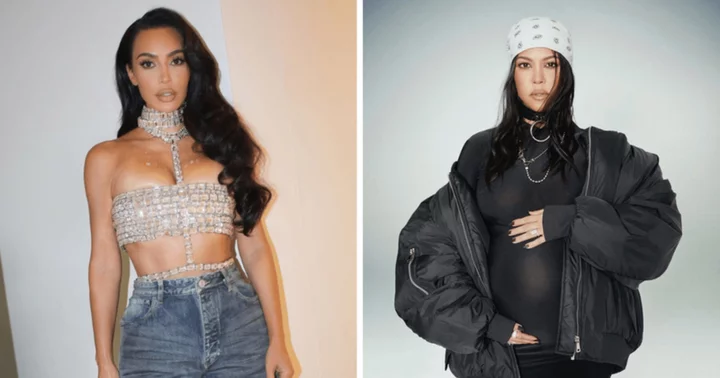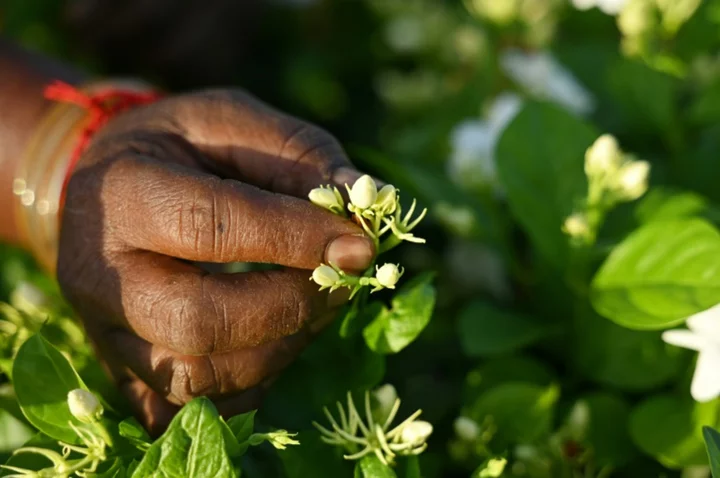TikTok is a breeding ground for the next big thing. What was once predominantly a Gen Z dance app has since evolved into a catalogue of lifestyle habits repackaged under quirky names.
Single? You’re ‘dating yourself.’ Attend the gym? You’re a ‘health girlie.’ Organised and minimal? You’re living the ‘Clean Girl Aesthetic’.
With over a billion views under the hashtag, the Clean Girl Aesthetic has dominated the app for some time now – and it doesn’t seem to be going anywhere soon. It has since adopted other areas of life such as health and mindfulness.
So, what is it?
For the blissfully unaware, the Clean Girl is a TikTok trend in which everything about someone’s life appears minimal and effortlessly chic. It is portrayed as being low maintenance.
A ‘Day in the Life’ generally starts with an early alarm, followed by a smoothie and minimal makeup for a dewy 'no make-up' glow.
The Clean Girl Aesthetic has since welcomed Pilates under its wing, often finished with a dash of bedtime journaling for good measure.
@mirellagir???♀️ #morningvlog #morningroutine #selfcare #thatgirlaesthetic #pilates #cleangirlaesthetic #aestheticroutine
Sign up for our free Indy100 weekly newsletter
While the lifestyle trend is proving popular across social media, some have argued that it isn’t as effortless as what meets the eye. Critics claim it actually takes more time, effort and money with five minute glazed ‘makeup-less’ looks being tied to £500 treatments.
The trend isn’t shy of controversy either, being credited to mostly white influencers. Some have highlighted that aspects of the aesthetic (specifically the ‘beauty’ tutorials) have roots in other cultures. That said, it’s always important to understand the origin of trends across TikTok and give credit where due.
The trend has since had a face-off with ‘Dirty Girl Aesthetic’, with Julia Fox declaring on EmRata’s High Low podcast: "Clean Girl Aesthetic is out."
The model added: "It’s about, Dirty Girl."
She went on to elaborate in a candid clip uploaded to her page, raising concerns about the said ‘rules’ of TikTok trends.
"Just so you guys know, ageing is fully in. Like, fully. Dirty girl. Ugly. Not wearing clothes that fit your body type. Just fully wearing everything you want," she told her followers.
@juliafoxOoooo I know this is gonna make the broke boys mad #OLDISIN
Now, if we strip it back to basics, remove the label and the aesthetically pleasing TikToks, the ‘beauty ideals’ and bouji products, we’re left with a handful of seemingly unproblematic healthy habits.
But, are they really effective as TikTok hypes them up to be – or are they merely a part of yet another internet fad? I spent the last month finding out.
Now, I pride myself on being a morning person so 5am starts can't be that challenging, right? Wrong.
The 5am club is a simple concept to understand – but much more difficult to carry out. You essentially rise at the ungodly hour in the name of productivity.
During your time of solitude, you complete house chores, read, grab some breakfast and journal before starting the working day.
Days 1-3 felt like a novelty and were filled with optimism and drive: journalling away, whipping up smoothies and taking long, hot showers.
Then came along days 3-5 and my body was crying out for those additional two extra hours in bed. The 'snooze alarm' was being abused – and by day 7, I officially called it a day.
I have full respect for the 5am rise and shiners, and admire that it's some people's bag – but it's a solid no from me. I ended up bored and restless. Not to mention, the constant reminder I could do all of these things at the end of the day with the same level of energy.
Sadly, the first week of journalling my feelings, thoughts and emotions were dedicated to bitching about how tired I was from the dreaded iPhone alarm. But, once the two hours sleep were added back into my routine, we were onto a winner.
It soon transformed into a mini mental health journey, allowing me to really gauge certain triggers and delve into feelings a lot deeper. One of the most surprising and unexpected finds for me was connecting the dots between sleeping and eating habits, prompting me to experiment with foods that perhaps weren't giving me the best time.
It also allowed me to set my intentions for the day and helped me to stay on track with different areas of life, including fitness.
Being the forgetful – and sometimes erratic – person I am, it really helped me slow down, unwind and actually remind me to follow through my my 'to do' lists.
This brings me to Pilates: The latest fitness trend taking social media by storm – thanks to the likes of Hailey Bieber, Lori Harvey and Kourtney Kardashian. Even Harry Styles has been spotted giving the Reformer machine a go.
You'll soon be humbled by what appears slow, effortless movements – as I learnt at The Health Lab.
"Celebrity fitness secrets used to be kept under lock and key but now the more you share the bigger your community," Faye Bennett, Health Lab's studio manager and instructor told Indy100. "Pilates does come with a certain aesthetic as it is commonly very clean movements which appeal to the eye (disclaimer: it’s not always like that!)."
"It is a sustainable style of fitness that you can ultimately do every day with no harm to joints. It’s low impact and the results are truly visible," Faye continues. "The short answer is, it works."
Truth is, Pilates is far from a new concept and has been practiced since the 1920s.
German-born Joseph Pilates worked as a circus performer, boxer and self-defence instructor in England in his early years, before serving as an orderly in an Isle of Man hospital where he helped patients unable to walk. He did so by attaching bed springs to hospital beds, later birthing the famous apparatus seen in most Pilates studios today.
"I invented all these machines... it resists your movements in just the right way so those inner muscles really have to work against it. That way you can concentrate on movement. You must always do it slowly and smoothly. Then your whole body is in it," he famously once explained.
Complete with 10 Reformer machines in an aesthetically-pleasing studio in the heart of Manchester, the Health Lab may look like an Instagrammer's playground – but it's much more than pretty pictures.
You will put in work, through low-intensity movements that will leave you aching in places you didn't even think possible.
Hand-in-hand with incredible instructors, experts and a passion for Pilates, I soon learnt there was much more to the phenomenon that meets the eye.
Being a loyal high-intensity exerciser over the years, I initially couldn't wrap my head around how subtle slow-paced movements could make a difference to my body.
I couldn't have been any more wrong.
After a month of training 3-4 times a week, I noticed improvements in my posture, strength and flexibility. It also had a surprising effect on my mental health– especially when it comes to anxiety – as it really taught me to prioritise and focus on breathing techniques.
"There’s an age old saying that 'you’re only as old as your spine,'" Faye says. "Pilates is both restorative and strengthening. It improves your posture and alignment so that when you do work out you can access those deep layers of muscle in charge of building strength from the inside out."
Faye explains that the leaner muscles become, the faster the metabolism and protected joints become.
"This means you will be less prone to injuries and generally feel more ease as you move. This comes from increased flexibility and mobility. We focus an awful lot on the core in pilates which gives you the ability to hold yourself taller, which takes pressure away from your spine and releases tension enabling a strong healthy spine. A healthy spine makes you feel younger, more agile and stronger."
While Reformer Pilates can initially look and feel daunting, sessions are guided by well-informed instructors who are on hand to offer help and modifications suited to everyone's individual needs. It's pretty easy to grasp after just one session.
"Just know, if you are finding that pilates burn or feeling a little bit wobbly, the rest of the class is too so you are never alone no matter what your experience level is," Faye adds.
While my Clean Girl month failed in some areas (a girl loves her sleep), Pilates and journalling are two new positive additions I'll be taking forward with me. They've provided both mental and physical benefits, by adding routine, clarity and a clearer, more settled mindset overall.
Maybe TikTok is onto something, after all.
To find out more information about The Health Lab classes, click here.
Have your say in our news democracy. Click the upvote icon at the top of the page to help raise this article through the indy100 rankings.









